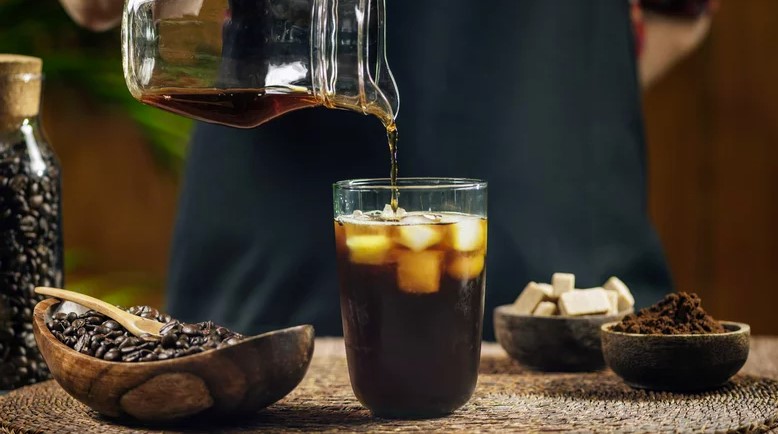Scientists have developed a technology for making cold-brew coffee using a laser

Do you have any idea what "picosecond-pulsed laser extraction" implies? Didn't quite get that? It could imply the new and improved gateway to delicious cold brew coffee. Scientists from Germany's Universitat Duisberg Essen (UDE) wanted to understand how the cold brewing method may be improved. The research was published in the "Nature" journal. Whether you're a coffee addict or simply drink it from time to time, it's difficult to dispute that the new technique of cold brew coffee preparation may one day revolutionize the sector.
Cold brew is a flavorful beverage that coffee connoisseurs will appreciate. It differs from most of the sweet caffeinated iced beverages we're used to because it has a different aim. Cold brew is highly regarded among enthusiasts for its purportedly superior flavor, drastically reduced acidity, and ease of access. While the chemistry behind cold brew is similar to that of hot coffee, some claim that it has up to 70% less acidity. While it's generally accepted that it has a lower acidity level, the numbers vary according on studies. Researchers from Thomas Jefferson University and Philadelphia University found that the pH difference wasn't significant — all coffee samples were within the same range of 4.85 to 5.13 in terms of pH levels.

Aside from the acidity issue, many people enjoy the flavor of cold brew, which is why they turn to it, whether at coffee shops or at home. One major disadvantage with cold brew is that it takes a long time to make, ranging from 12 to 24 hours. However, if UDE scientists are correct, making it may soon get a lot easier.
Although the team did a fantastic job detailing how laser-brewed coffee is made, we'll try to break it down into something simpler to understand (much like actual cold brew coffee). The researchers utilized a special type of laser and lowered the settings of the process down to picoseconds, which equals one trillionth of a second. The laser fires 125-picojoule pulses for 10 picoseconds. For about three minutes, all of this is passed through a combination of ground coffee and water many, many times over — as much as 80,000 times per second in fact. This appears to be a cross between cold brewing and micro batching.
The solution they created was then filtered and compared to a real 24-hour cold brew as well as a regular hot cup of joe in order to measure their own accomplishments accurately. The discovered results are quite promising. The so-called laser brew had near the same acidity as the 24-hour cold brew, whereas both were far less acidic than normal hot coffee. IIn terms of caffeine levels, laser coffee was more similar to hot coffee than cold brew, which has a greater potential to retain caffeine and trigonelline. However, increasing the duration of the brewing process might make laser coffee richer in flavor and higher in caffeine.
Source: www.slashgear.com